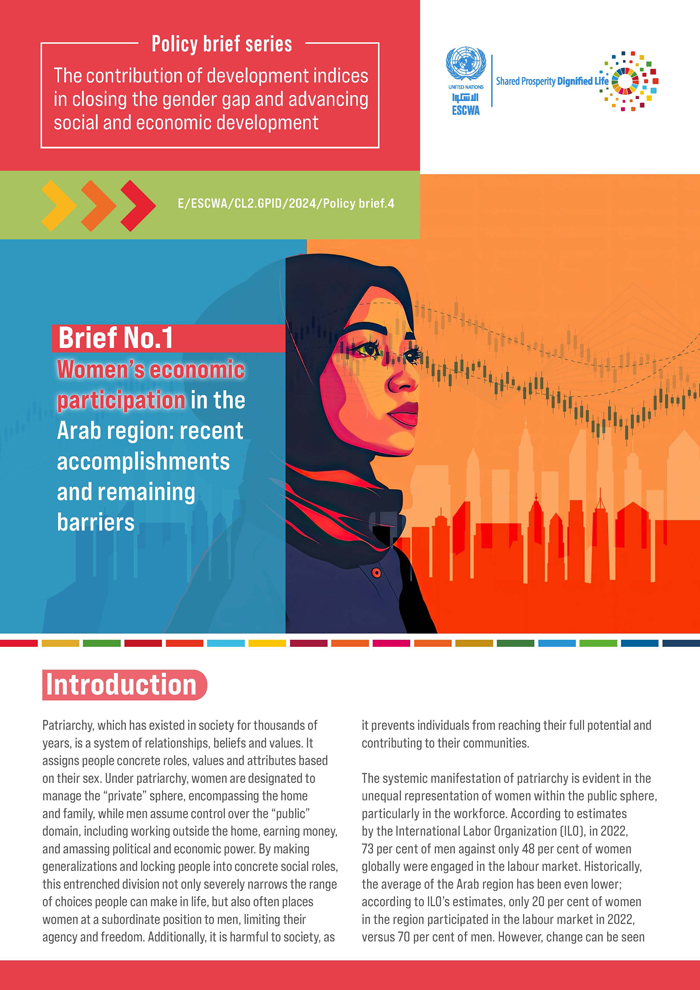
ESCWA Publication: E/ESCWA/CL2.GPID/2024/Policy brief.6
Country: Arab region, People’s Democratic Republic of Algeria, Union of the Comoros, Arab Republic of Egypt, Republic of Iraq, Hashemite Kingdom of Jordan, State of Kuwait, Lebanese Republic, State of Libya, Islamic Republic of Mauritania, Kingdom of Morocco, Kingdom of Saudi Arabia, Republic of Tunisia, United Arab Emirates, Republic of Yemen
Publication Type: Policy briefs
Cluster: Gender Justice, Population and Inclusive Development
Focus Area: Gender equality, Inclusive development
Initiatives: Beijing Declaration and Platform for Action, Reducing inequalities, Women’s economic empowerment, Women, peace and security, Gender Justice and the Law, Women’s rights and gender mainstreaming, Promoting social justice
SDGs: Goal 3: Good Health and Well-Being, Goal 4: Quality Education, Goal 5: Gender Equality, Goal 10: Reduced Inequalities
Keywords: Algeria, Arab countries, Comoros, Discrimination, Educational systems, Egypt, Food security, Gender equality, Health care delivery, Income distribution, Iraq, Jordan, Kuwait, Lebanon, Libya, Mauritania, Morocco, Quality of life, Saudi arabia, Social surveys, Standard of living, State of palestine, Tunisia, United arab emirates, Yemen, Youth
Inequality in the eyes of Arab people
October 2024
Inequality is multifaceted. The most well-known source of inequality is income inequality. But inequality can manifest itself in various other dimensions, many of which intersect and reinforce each other. Economic inequality, gender inequality, youth inequality, and inequalities in access to health, education, social protection, food, finance and technology all threaten to exclude vulnerable populations from wider socioeconomic development.
People’s perceptions of their standard of living provide valuable insights into these inequalities, highlighting societal issues that income statistics alone cannot capture. This policy brief uses Gallup World Poll Survey data on people’s perceptions of their current and future quality of life to better understand inequality in the Arab region.
Related content
Gender equality
, Inclusive development
,
Inequality is multifaceted. The most well-known source of inequality is income inequality. But inequality can manifest itself in various other dimensions, many of which intersect and reinforce each other. Economic inequality, gender inequality, youth inequality, and inequalities in access to health, education, social protection, food, finance and technology all threaten to exclude vulnerable populations from wider socioeconomic development.
People’s perceptions of their standard of living provide valuable insights into these inequalities, highlighting societal issues that income statistics alone cannot capture. This policy brief uses Gallup World Poll Survey data on people’s perceptions of their current and future quality of life to better understand inequality in the Arab region.



